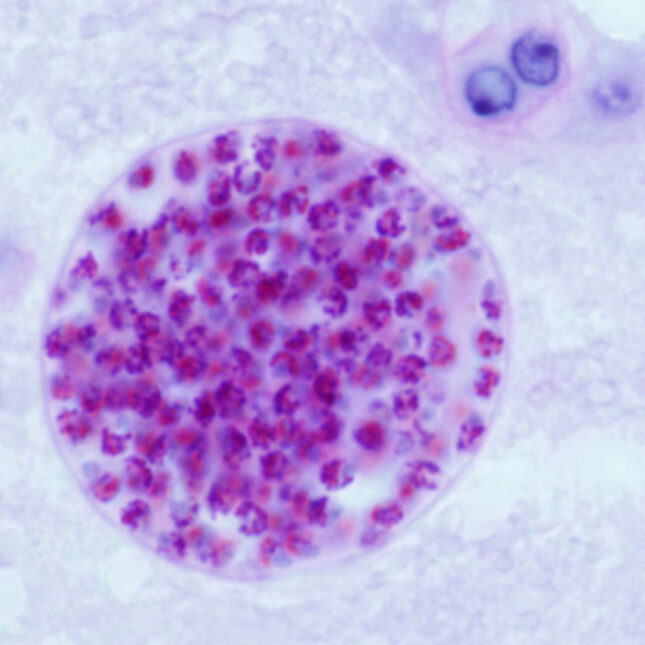
The human body works hard to prevent outside substances from entering the brain — which makes it a challenge to get drugs into the brain to treat neurological diseases. A study published today in Nature Microbiology opens the door to a potential clever solution, showing how Toxoplasma gondii, a parasite that is able to cross the blood-brain barrier, can be engineered to treat a brain development disorder in mice.
Shahar Bracha, a postdoctoral fellow at the Massachusetts Institute of Technology, and colleagues engineered the parasite to make and secrete multiple large therapeutic proteins once it was inside the mouse brains. These proteins would not have been able to cross the blood-brain barrier on their own.
By “copying notes from evolution,” Bracha said, her team was able to “take a solution that already existed in nature” to treat mice with Rett syndrome — a brain development disorder caused by a mutation in the MeCP2 gene. In humans, Rett syndrome affects girls, who experience issues with coordination, communication, and movement starting from as early as their first year of life.

This article is exclusive to STAT+ subscribers
Unlock this article — plus in-depth analysis, newsletters, premium events, and news alerts.
Already have an account? Log in
To submit a correction request, please visit our Contact Us page.










